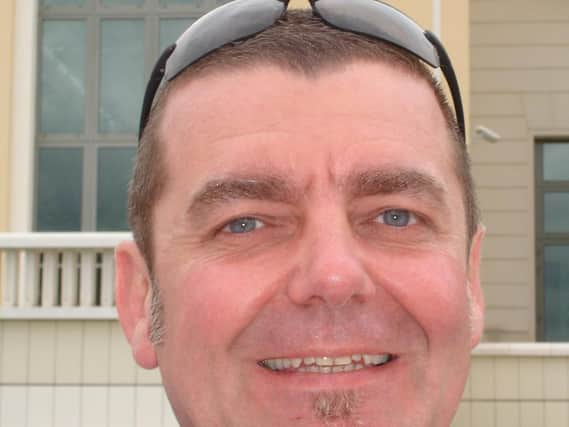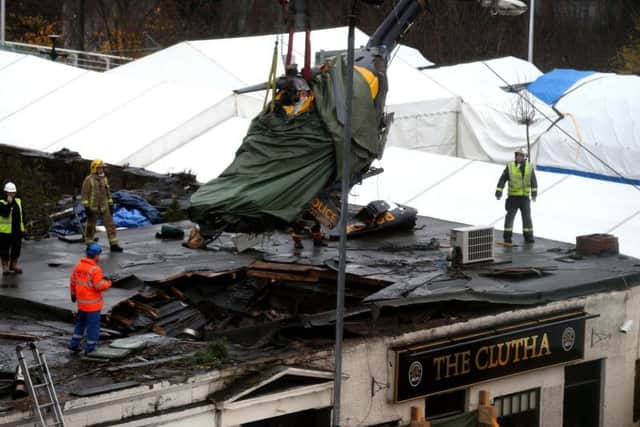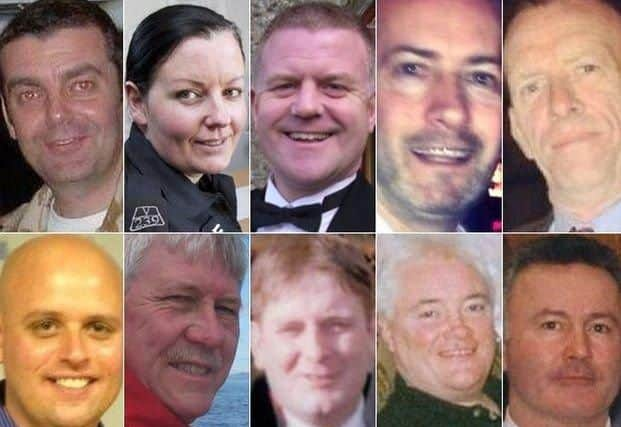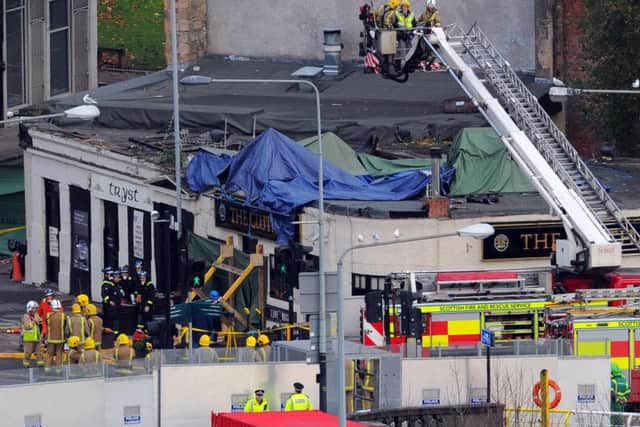Clutha FAI report: Pilot 'taking a chance' caused crash


Ten people died after a Police Scotland helicopter crashed onto the bar in Glasgow city centre on 29 November 2013.
Sheriff Principal Craig Turnbull said: "The central question for the inquiry is why did that happen?
"The answer is a simple one.


Advertisement
Hide AdAdvertisement
Hide Ad"Captain [David] Traill ignored the low fuel warnings he received.
"Had he followed the procedure set down in the pilot’s checklist in respect of the low fuel 1 and / or low fuel 2warnings, the accident would not have happened.
"Put another way, Captain Traill took a chance that the low fuel warnings he received were erroneous.
"That was a conscious decision on his part.


"It was a decision that had fatal consequences for ten people."
The sheriff principal said: "Precautions which could reasonably have been taken; and had they been taken, might realistically have resulted in the accident resulting in the deaths, and therefore the deaths, being avoided would have been for the pilot of the helicopter David Traill to have followed the procedure set down in the pilot’s checklist" about low fuel warnings."
He said another factor which could have averted the crash would have been helicopter manufacturer Airbus including a warning in the fuel contents indication system "and associated aural attention-getter which activated where both fuel transfer pumps had been switched off".
The sheriff principal said the contents of the supply tanks were depleted due to the failure of the pilot "to ensure at least one of the helicopter’s fuel transfer pump switches was set to on".


Fuel indicator 'contradicted warnings'
He said there were "no defects in any system of working which contributed to the deaths"
Advertisement
Hide AdAdvertisement
Hide AdHowever, he said the quantities of fuel displayed on the fuel quantity indication system contradicted the low fuel warnings.
He concluded: "The reason why [the helicopter] crashed is not in doubt.
"Its engines flamed out sequentially, as a result of fuel starvation, due to depletion of the contents of thesupply tanks; and the pilot, Captain Traill being unable to successfully perform an autorotation and landing of the helicopter.
"The contents of the supply tanks depleted due to the failure of Captain Traill to ensure that at least one of [the] fuel transfer pump switches was set to on."
The sheriff principal said the engines of the Eurocopter Deutschland EC135 T2+ helicopter had "flamed out sequentially while the helicopter was airborne, as a result of fuel starvation, due to depletion of the contents of the supply tank".
He said the pilot was "unable to successfully perform an autorotation and landing of the helicopter".
The FAI followed a report into the crash by the Department for Transport's air accidents investigation branch.
Advertisement
Hide AdAdvertisement
Hide AdIt was announced in August last year, with the main hearings starting at Hampden in Glasgow in April.
The FAI heard the pilot would have received five low fuel warnings.
Mr Traill, 51, died along with Constable Tony Collins, 43, and Constable Kirsty Nelis, 36 aboard the helicopter.
Also killed were seven customers of the popular city centre bar beside the Clyde.
They were: Gary Arthur, 48; Joe Cusker, 59; Colin Gibson, 33; Robert Jenkins, 61; John McGarrigle, 58; Samuel McGhee, 56; and Mark O’Prey, 44.
Sheriff Principal Turnbull praised relatives and friends of those who died, and those who were injured.
He said: "The events of 29 November 2013 changed forever the lives of many people.
"A number of them were present throughout many days of evidence in this inquiry.
"The dignity with which they did so is admirable.
Advertisement
Hide AdAdvertisement
Hide Ad"I extend the condolences of the court and of all who work within it to all those affected by this tragedy: to not only the friends and relatives of those who died, but to those who were injured that evening; and to those who must livewith the events of it."